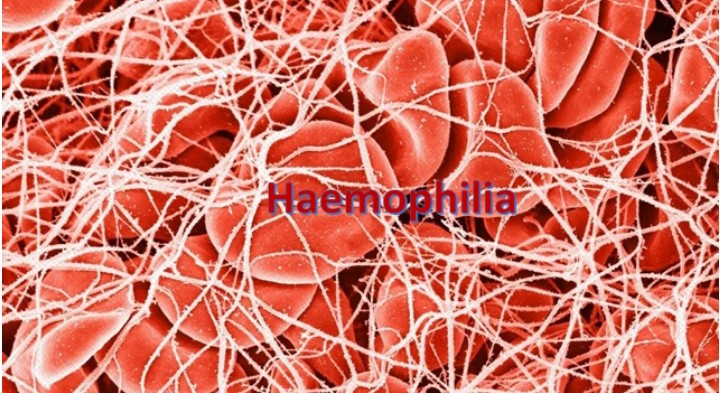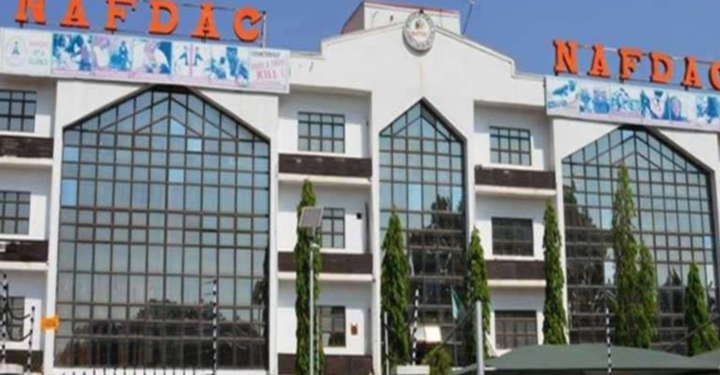Certain people have an inherited bleeding condition called haemophilia. This is a condition whereby the blood does not clot as properly as those of others. The cause of this is a deficiency of proteins called clotting factors, which help stop bleeding.
READ ALSO: Cannabis-laced Milk Coming Soon To A Supermarket Near You
There are three types of the haemophilia disorder depending on the type of a specific factor deficiency. Thus, we have the most common haemophilia A caused by factor VIII deficiency, haemophilia B (factor IX deficiency), and a rare haemophilia C, which is caused by a factor XI deficiency.
Haemophilia B otherwise called Christmas Disease after the child, Stephen Christmas, who was the first person to be diagnosed with the disorder in 1952, is the second most common type of haemophilia. It is normally treated by injections of the protein, factor IX. This is because people with the disorder do not have the gene coding for factor IX, a protein required to form blood clots and stop uncontrolled bleeding that can be life-threatening.
The curious thing about haemophilia B is that, it is a single gene defect and an X-linked recessive disorder just like haemophilia A, which affects mainly males while females are carriers. The famous carrier of the disorder was late Queen Victoria of England.
The haemophilia B disorder is carried on the X chromosome. Since females have two X chromosomes and males have only one X and Y chromosomes, respectively, females therefore, having only one copy of the disorder are only carriers and not affected except in some unusual circumstances where the mutation (or disorder) occurs in both X chromosomes. Whereas males with only one X chromosome having the mutation, would be affected by the disorder.
The normal treatment for patients with haemophilia is intravenous administration of factor concentrate several times in a week. This reduces joint bleeds and long-term joint diseases like arthritis.
The US FDA (US Food and Drug Agency) recently approved a drug called Etranacogene dezaparvovec (sold under the brand name, Hemgenix). Hemgenix was developed for the treatment of haemophilia B by CSL Behring, a pharmaceutical company based in Pennsylvania, USA. It is a gene therapy drug, which uses a viral vector to deliver a gene coding for factor IX protein. This gene is delivered to recipient’s liver cells enabling the person to begin to synthesise the factor IX protein, thereby reversing the haemophilia B condition to a degree.
Data from clinical trial showed a promising prospect of just a single dose of the drug, Hemgenix, providing protection against haemophilia B for more than 8 years. But this comes with a hefty price of $3.5 million per one-time treatment!
Data from the clinical trial involving 54 patients with the haemophilia B disorder, showed a 54 per cent reduction in the number of bleeding episodes per year after receiving the Hemgenix single-dose treatment. In about eight months after the treatment, the patients started synthesising factor IX, leading to a stabilisation of the level of factor IX. And within two years, 52 out of the 54 participants (i.e. 94 per cent of participants), stopped taking any remedial therapy.
But in the long run, sufferers treated with the gene therapy, Hemgenix, might still have a problem with bleeding especially if they are involved in surgery or major trauma and their factor IX levels falls below 50 per cent, in which case prophylaxis treatments would be needed.
Hemgenix cannot be used to treat haemophilia A, the commonest haemophilia disorder, neither can the same approach be applied. This is because higher production of factor VIII, the protein coagulation factor deficiency which caused haemophilia A, is required for effective prophylaxis. Also, strong immune responses to the viral vector used in delivering the gene is exhibited by some people who participated in the clinical trial of a similar gene therapy for haemophilia A.
Emicizumab is a non-factor monoclonal antibody that mimics the action of factor VIII, and is administered subcutaneously for treatment of haemophilia A. This removes the need for frequent intravenous administration and results in low bleeding rate. However, the risk of bleeding is not completely removed, requiring patients to undergo additional treatments especially during surgery or major trauma. Emicizumab costs around $640 per year’s worth of treatment!
Several work on gene therapy for haemophilia A have been ongoing and in late August 2022, the European Medicine Agency (EMA) approved a gene therapy for haemophilia A by BioMarin Pharmaceutical, USA. The drug is called Valoctocogene roxaparvovec but is sold under the brand name, Roctavian. It is a gene therapy much like Hemgenix but designed for the treatment of haemophilia A in adults without a history of Factor VIII inhibitors and without detectable antibodies to adeno-associated virus serotype 5 (AAV5). The EMA also recommended a generous 10-year period of market exclusivity to BioMarin Pharmaceutical, which has readily been approved by the European Commission. The US FDA is also expected to approve the drug for use in the USA in early next year.
Roctavian like Hemgenix, is administered only once by infusion, and its effect has been modelled to last for 12 years. And just like Hemgenix, it has a hefty price tag of about $2.5M per treatment! Still relatively cheaper compared to Hemgenix at $3.4M.
Currently the average cost for treating an adult with haemophilia B is between $700K and $800K a year. This gives an average cost of $5.6M per adult for an eight-year treatment. Contrast this figure with the $3.4M one-off treatment with Hemgenix, which lasts for at least eight years. Therefore, in the long run, you are making a savings of more than $1.8M by undergoing the Hemgenix treatment – ie if you are a dollar millionaire! But if you are not a millionaire, you can go for the cheaper alternative like every other mere mortals – faith-healing. It is free and easily accessible!
P/S: To celebrate Christmas, we are taking a break from Science, but don’t worry, we shall be bringing you instead lighthearted stories designed to bring smiles on your faces and help you relax and enjoy the season. Merry Christmas!


















Follow Us